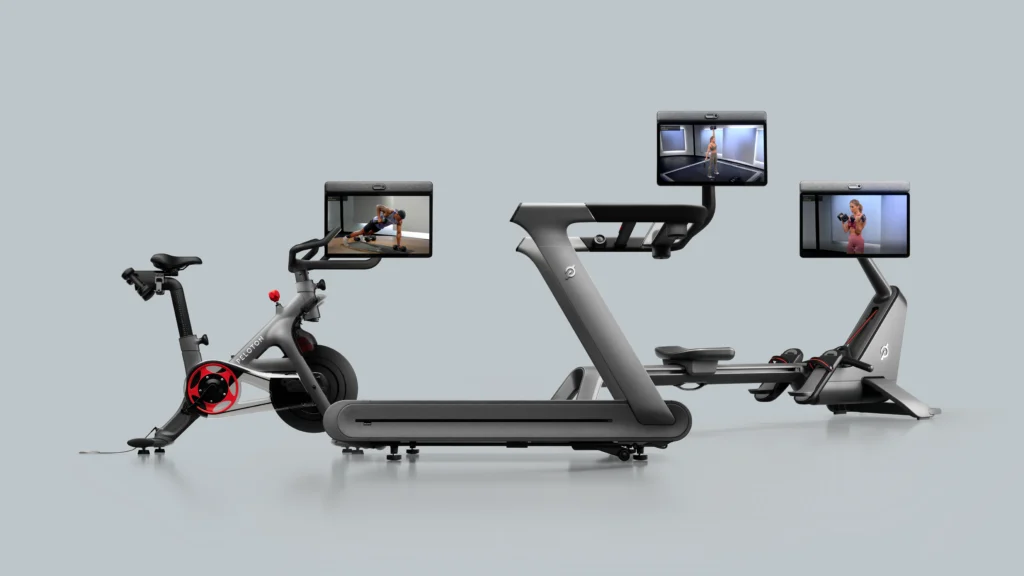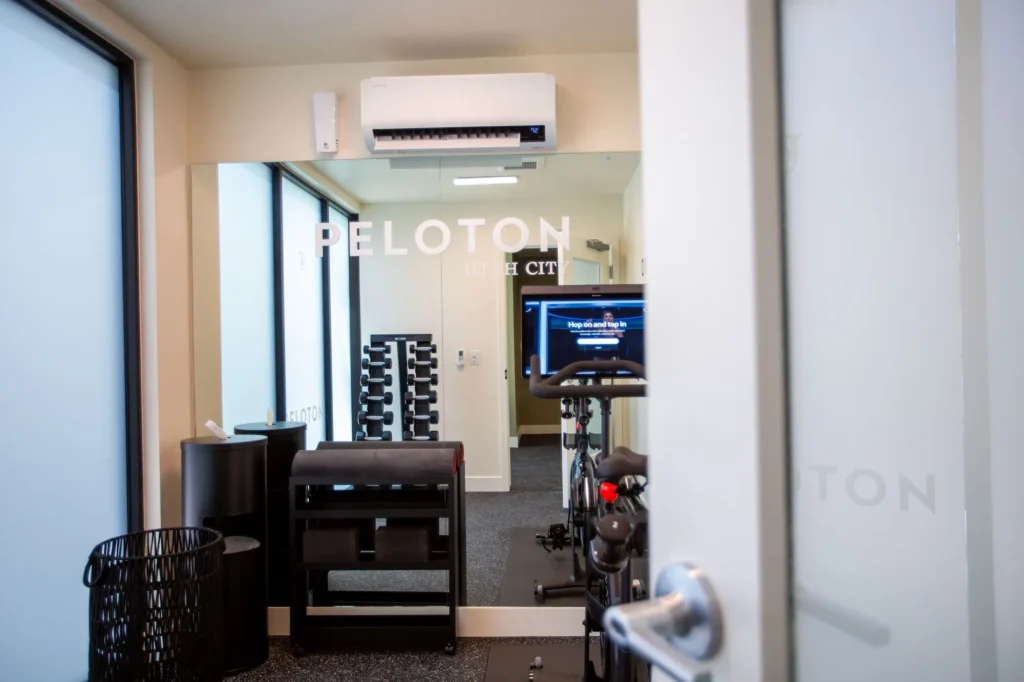
Peloton did better than expected this quarter as the connected fitness giant leans into AI innovations and new partnerships, but news of a Bike+ recall put a damper on things, causing PTON shares to drop
Peloton reported a quarterly profit and lifted its full-year outlook Thursday, capping an eventful day that began with a voluntary recall of nearly 878,000 Original Series Bike+ models sold in the U.S. and Canada.
For the quarter ended Sept. 30, Peloton posted net income of $14 million, compared with a loss of roughly $1 million a year earlier. Adjusted EBITDA rose 2% to $118 million, topping company guidance, while revenue fell 6% to $551 million but came in ahead of forecasts.
Peloton ended the quarter with 2.73 million paid connected-fitness subscribers, down 6% year-over-year, though churn improved to 1.6%.
Looking ahead, the company expects second-quarter revenue of about $665 million to $685 million and full-year sales between $2.4 billion and $2.5 billion.
Peloton shares dropped nearly 6% on Thursday. (Editor’s note: Peloton shares increased over 14% on Friday, more than making up for Thursday’s drop, signaling investor confidence in the brand following Q3’s earnings report)
Speaking on Peloton’s fiscal first-quarter 2026 earnings call Thursday afternoon, Peloton chief financial officer Liz Coddington said the financial impact of the latest recall is limited.
“In terms of revenue impact, unlike our prior seat post recall, this recall affects bikes manufactured during a specific period that we no longer sell,” she said. “We already have replacement seat post inventory available to fulfill anticipated replacement orders, and the overall revenue impact is expected to be immaterial and is reflected in our full-year guidance.”
CEO Peter Stern, an Apple Fitness+ co-founder who took the helm a year ago, said the results show continued progress toward profitable growth.
“In this quarter leading up to the launch of our new equipment lineup and Peloton IQ, our team once again demonstrated the power of disciplined execution and focus,” Stern said. “Our continued momentum on bottom-line performance sets the stage for improvements on the top line as we progress through the fiscal year, fueled by our commitment to innovation and growing the Peloton community.”
“I am confident in our team’s ability to execute our strategic plan, return Peloton to profitable growth, and extend Peloton’s lead in connected fitness and wellness,” he added.
Making Moves Under Stern
The company is leaning on a lineup refresh and new AI tools to reignite growth. It recently launched Peloton Cross Training Series machines, introduced Peloton IQ, an AI-powered coaching platform and completed its acquisition of Breathwrk, a wellness app focused on breathwork and mindfulness.
Stern said early data suggest Peloton’s latest launches are already influencing buying behavior.
“Since launching the Cross Training series and Peloton IQ, we’ve observed a favorable mix shift toward our more premium products, including a mix shift toward Tread sales and toward our Plus line of products,” he said, referring to Peloton’s higher-end lineup, which includes the Bike+, Tread+ and Row+. “The latter of which (Plus) we believe is driven by excitement around the advanced computer vision features.”
Peloton also expanded its retail network through 10 new microstores and over 100 partner retail locations in the U.S. and announced partnerships with health tech company Twin Health, Halle Berry-founded holistic menopause platform Respin Health, the Hospital for Special Surgery and global fitness racing brand Hyrox.
The connected fitness company has been experimenting with new ways to keep members engaged.

Last month, Peloton launched Club Peloton, its first loyalty and recognition program, which lets members progress through tiers from Bronze to Legend by completing workouts and hitting milestones. The platform offers exclusive content, rewards and social recognition. So far, more than 500,000 members have taken part in the program.
“Celebrating achievement is crucial for sticking with any program,” Stern said, noting that since Oct. 1, engagement with Team challenges, its community-focused feature, has increased nearly 50%.
In a push beyond home gyms, Peloton is expanding into the commercial fitness market through its new Pro Series, a line of equipment built for hotels, residential complexes, corporate wellness centers and country clubs. The move builds on the company’s acquisition of Precor, which now anchors its Commercial Business Unit.
In Utah City, a 700-acre development on Utah Lake, Peloton is embedding its brand into daily life with dedicated fitness spaces and commercial-grade equipment in the first Peloton-powered community.
“Strategically, our commercial business unit is set up to win,” Stern said. “The market opportunity is large, and when I talk to gym operators, they all tell me that there’s only one brand that consumers ask for by name, and that’s Peloton.”

He added that Precor’s presence in more than 60 countries gives Peloton a broader global platform for expansion. Peloton currently operates in just six countries, a footprint Stern suggested is poised to grow.
“That opens up opportunities for Peloton to enter these new markets in ways that build on existing distribution and relationships that we’ve already got, starting with B2B,” he said.
Connected Fitness (Still) Isn’t What It Used To Be
During the Q&A portion of the call, Coddington addressed demand trends related to connected fitness.
“Our internal estimates, using third-party sales data, indicate that the category in the U.S. is still declining year-over-year following the surge from mid-2020 to mid-fiscal 2022,” she said. “The rate of decline has decelerated to low single digits, which we find encouraging, but we do expect to see some continued softness in connected fitness equipment demand in the short to medium term, and that is incorporated into our full-year guidance.”
Over the long term, however, she said Peloton remains bullish on its growth potential and on the broader connected fitness and wellness economy.
“Consumers are placing a higher value on fitness and wellness,” Coddington said. “While the entire wellness economy is valued at over $2 trillion in the U.S., we’re focusing on expanding into categories that demonstrate scale and proven results — strength, mental well-being, nutrition, hydration, sleep and recovery.”
This story has been updated to include new information on Peloton’s stock performance on Friday.
